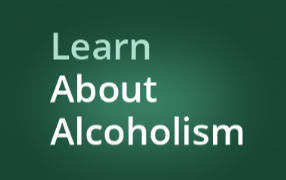Effects of Alcoholism on Families
There is plenty of information available about the negative effects of alcohol abuse can have on an alcoholic. There are health concerns such as liver disease, mental health concerns such as an increased risk for depression and depressive symptoms as well as relationship concerns in various relationships.
Another important effect to be aware of is how alcoholism negatively impacts the alcoholic’s family.
If the alcoholic has a spouse or a partner, they will likely experience turmoil within their relationship. This can be the result of dishonesty, a change in priorities or even distancing themselves from the family and loved ones.
If the alcoholic has children, they too will likely experience negative side effects of the parents alcoholism. Children of alcoholics are at a higher risk of mental health concerns such as a low self-esteem as well as anxiety and depressive symptoms.
Pregnant women who drink alcohol during their pregnancy are exposing their babies to alcohol within the womb which can lead to a variety of birth defects.
Fetal Alcohol Syndrome (FAS) has abnormalities that are characteristic of a woman who drinks when she is pregnant.
Thankfully, there is a variety of resources and supports available for families living with an alcoholic. It is important to note that even if the alcoholic does not live with the family, the family dynamic is still impacted and would still benefit from having support.
Continue reading for more on how families are impacted as well as supports available.
How Alcoholism effects Families
The effects of alcoholism on families can cause more damage and pain than any other internal or external influence on the family unit. The impact of the drinker’s abuse or addiction is usually manifested differently with each member of the family and has long-term implications.
Alcoholism has wide ranging effects that touch not only the alcoholic but all those around him or her.
The National Institute on Alcohol Abuse and Alcoholism reports that more than one-half of adults in the U.S. have a close family member who has abused alcohol or is addicted to the drug.
Children of Parents who Drink
Unborn Babies: Women who drink during pregnancy pass the drug to their unborn children each time they consume alcohol. Maternal drinking causes babies to be born with irreversible physical and mental birth defects.
This condition is called Fetal Alcohol Syndrome (FAS) and these children grow up with facial abnormalities, growth retardation and brain damage that inhibits their ability to live normal lives.
According to the National Council on Alcoholism and Drug Dependence, severe damage from FAS affects around 5000 babies every year; additionally 35000 babies are born with milder damage from FAS.
Children: Children who are born without birth defects and live with a father and/or mother who is an alcohol abuser or addict experience severe effects that may include:
- Low self-esteem
- Feelings of guilt and despair
- Loneliness and fear of abandonment
- Chronic depression
- High levels of anxiety and stress
They may believe that their parent’s drinking is their fault and frequently cry, have nightmares and wet their beds. Once they get older, children may not easily make friends. They may hoard things, develop phobias or exhibit perfectionist traits.
Through the effects of alcoholism on families, children often feel they are different that other people and develop a poor self-image that they carry throughout life.
They have difficulties in school and establishing relationships with friends and teachers. And fewer children of alcoholics go to college compared to the national average.
In addition, living in an alcoholic family also suggests that children are more susceptible to child abuse, including incest and battery.
Adult Children of Alcoholics: Once children become adults, the effects of alcoholism on families continue to impact their lives. They experience difficulties trusting others and have relationship issues.
Depression is common, as is anxiety, aggression and impulsive behavior. Adult children of alcoholics continue having a negative self-image, which causes them to make poor choices and accumulate failures in their work, social and family lives.

Spouse or Partner
Alcoholism has a transforming effect on the spouse or partner that can create significant mental trauma and physical health problems. Divorce rates among couples where one or both partners drinks is much higher than average.
As alcohol abuse or addiction progresses, the non-drinking spouse often grows into a compulsive care-taking role, which creates feelings of resentment, self-pity and exhaustion. The marriage suffers from:
- Poor spousal communication
- Increased anger and distress
- Reduced intimacy and sexual desire
- Increased marital abuse
- Depleting finances spent on alcohol
Often the spouse and children become codependent, as one of the effects of alcoholism in families. Codependents, who are also referred to as enablers, further the alcoholic’s drinking problem by trying to protect them and keep them out of trouble.
This may include telling an employer a lie about why the individual didn’t come to work, telling friends stories to explain the alcoholic’s behavior, or handling a responsibility that should have been taken care of by the drinker.
Codependents make the problem worse by permitting the drinking to continue. After a while, they begin to feel guilty for helping the person that’s addicted in this manner and turning their back on responsibilities leads to resentment.
The effects of alcoholism in families also cause codependents to lose their self-respect, become sick themselves and have a lower quality of life.

Given the turmoil that an alcoholic spouse or partner can create in a family’s emotional and physical health, it is not surprising that many friends, coworkers and relatives try to convince the individual to get help for their problem.
Effects of Alcoholism on Families … Is there Help?
Treating alcoholic families is difficult and complex. Often treatment is not entirely successful for family members, even when the alcohol abuser or addict eventually reforms.
The effects of alcoholism in families are difficult to overcome; yet without treatment, they can be devastating for the long-term. With the right approach and support, positive steps can be taken to improve lives.
Healthcare professionals may recommend a multi-faceted treatment approach that includes group family therapy, as well as individualized treatment for each family member Treatment may take the form of one or more of the following:
- Interventions
- Out-Patient Programs
- In-Patient Programs
- Peer Support Groups
- Psycho-Social Therapy
- Medication-Assisted Treatment

I am a Mental Health Counselor who is licensed in both New York (LMHC) and North Carolina (LCMHC). I have been working in the Mental Health field since 2015. I have worked in a residential setting, an outpatient program and an inpatient addictions program. I began working in Long Island, NY and then in Guelph, Ontario after moving to Canada. I have since settled in North Carolina. I have experience working with various stages of addiction, depression, anxiety, mood disorders, trauma, stages of life concerns and relationship concerns.
I tend to use a person-centered approach which simply means that I meet you where you are and work collaboratively to help you identify and work towards accomplishing goals. I will often pull from CBT when appropriate. I do encourage use of mindfulness and meditation and practice these skills in my own life. I believe in treating everyone with respect, sensitivity and compassion.
I recognize that reaching out for help is hard and commend you for taking the first step. We have professionals available who would be happy to help you move closer to reaching your goals related to your drinking concerns. You may reach these professionals by calling 877-322-2694.
